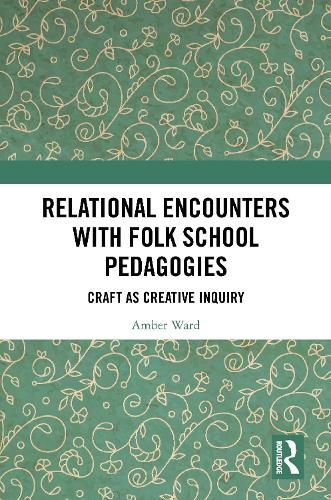Readings Newsletter
Become a Readings Member to make your shopping experience even easier.
Sign in or sign up for free!
You’re not far away from qualifying for FREE standard shipping within Australia
You’ve qualified for FREE standard shipping within Australia
The cart is loading…






This book explores folk school pedagogies through craft as creative inquiry. Using a study at and inspired by The Clearing Folk School, a continuing education institution located at the northern tip of the Door County Peninsula, Wisconsin, United States, it explores the crafting of teaching practices from learners, educators, researchers, artists, animals, land, plants, and sky. The author shows how such practices function as an antidote to contemporary anthropocentric, environmental, and political crises. Contributing to conversations in posthuman ethics, it engages folk school pedagogies between humans and more-than-humans through thinking, writing, folding, interviewing, collaging, and journaling. Exploring craft as creative inquiry that works against conventional methods of and assumptions about research, it ultimately investigates the utility of folk school teaching practices that highlight relations between beings and things as kin. As such, it will appeal to scholars, researchers, faculty, and postgraduate students working across research methods, arts education, and educational philosophy by taking seriously relational pedagogies and perspectives through craft as creative inquiry.
$9.00 standard shipping within Australia
FREE standard shipping within Australia for orders over $100.00
Express & International shipping calculated at checkout
This book explores folk school pedagogies through craft as creative inquiry. Using a study at and inspired by The Clearing Folk School, a continuing education institution located at the northern tip of the Door County Peninsula, Wisconsin, United States, it explores the crafting of teaching practices from learners, educators, researchers, artists, animals, land, plants, and sky. The author shows how such practices function as an antidote to contemporary anthropocentric, environmental, and political crises. Contributing to conversations in posthuman ethics, it engages folk school pedagogies between humans and more-than-humans through thinking, writing, folding, interviewing, collaging, and journaling. Exploring craft as creative inquiry that works against conventional methods of and assumptions about research, it ultimately investigates the utility of folk school teaching practices that highlight relations between beings and things as kin. As such, it will appeal to scholars, researchers, faculty, and postgraduate students working across research methods, arts education, and educational philosophy by taking seriously relational pedagogies and perspectives through craft as creative inquiry.